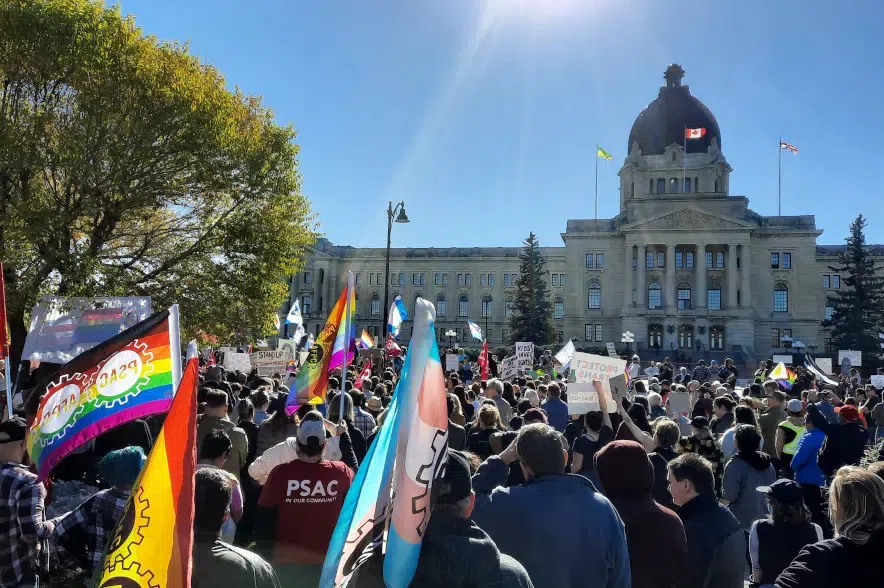Eleven parties have been approved to intervene in the provincial government’s appeal of a Court of King’s Bench decision on its controversial pronoun law.
In February, a judge allowed the case against the pronoun law to continue despite the government putting the policy into law and invoking the notwithstanding clause. Government lawyers tried to argue the court no longer had jurisdiction because of the use of the clause.
The provincial government is now appealing that decision, and 12 applications had been put in for intervenor status.
Eleven of those applications were approved:
- The governments of New Brunswick and Alberta;
- The Advocates’ Society;
- Amnesty International Canadian Section;
- British Columbia Civil Liberties Association;
- Canadian Civil Liberties Association;
- John Howard Society of Saskatchewan;
- Justice for Children and Youth;
- Trial Lawyers Association of British Columbia;
- Women’s Legal Education and Action Fund Inc.; and
- Three unions together with one join application: Saskatchewan Federation of Labour, Canadian Union of Public Employees and Canadian Teachers’ Federation.
Only one application was not approved, from Our Duty Canada. The group was founded in the UK and its website calls itself “an international support network for parents who wish to protect their children from gender ideology.”
The Court of Appeal decision said the group initially only submitted a brief of law “unsupported by any evidence to explain the nature of the organization and its interest in the proceedings.” It later submitted an affidavit.
Our Duty Canada’s application wasn’t approved, according to the decision, because its affidavit didn’t address the constitutional issues raised in the appeal and instead spoke to the underlying issues, on which the decision said the other parties will be able to properly inform the court.
The appeal is to be heard on September 23 and 24.
The law, which the government dubbed the Parents’ Bill of Rights, means parents have to consent before a requested name and pronoun change from a student will be honoured in a Saskatchewan school. It also requires parents to be notified when sexual health education is happening and what will be included, and gives parents the ability to take their kids out of the class if they wish.
“The whole reason behind this policy is we want to see parents more involved in their child’s education,” Education Minister Jeremy Cockrill said when the bill was introduced. “We want that right to be preserved for parents to be involved in their child’s education.”











